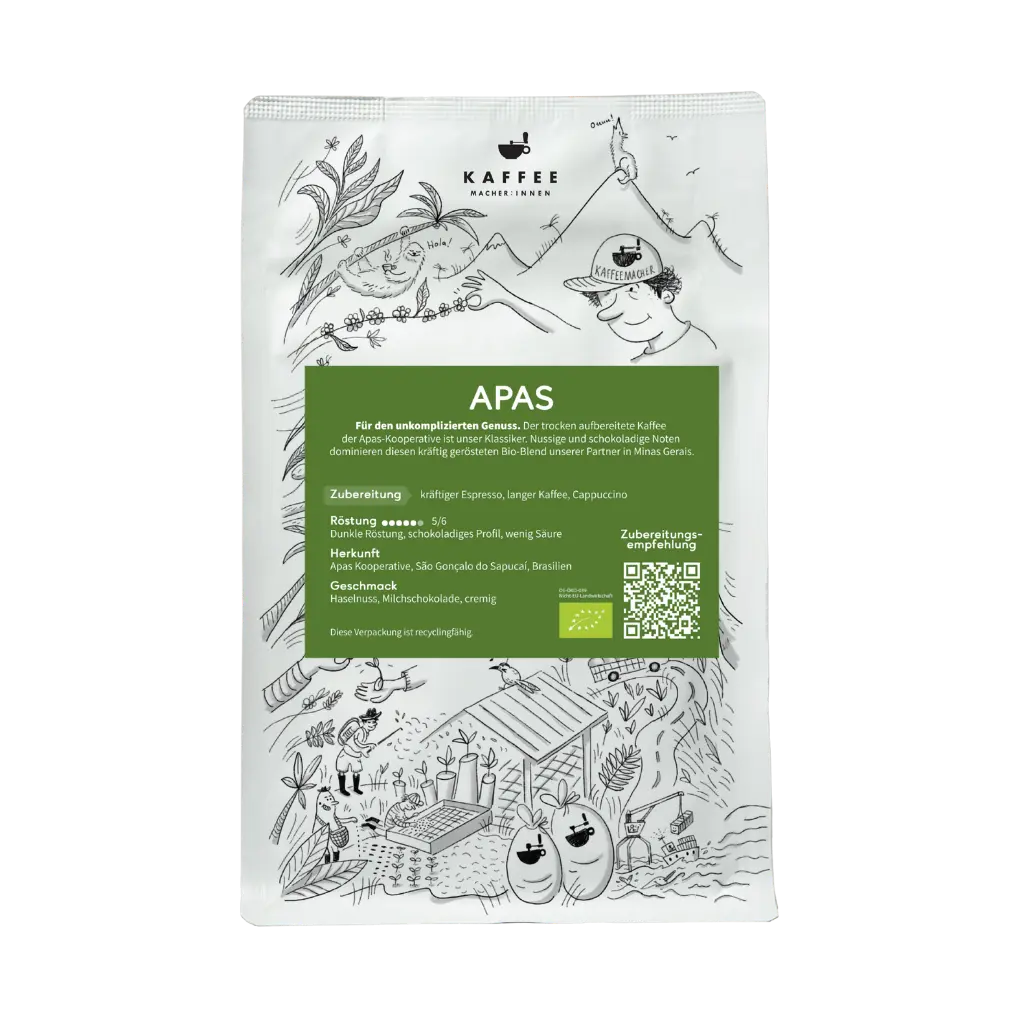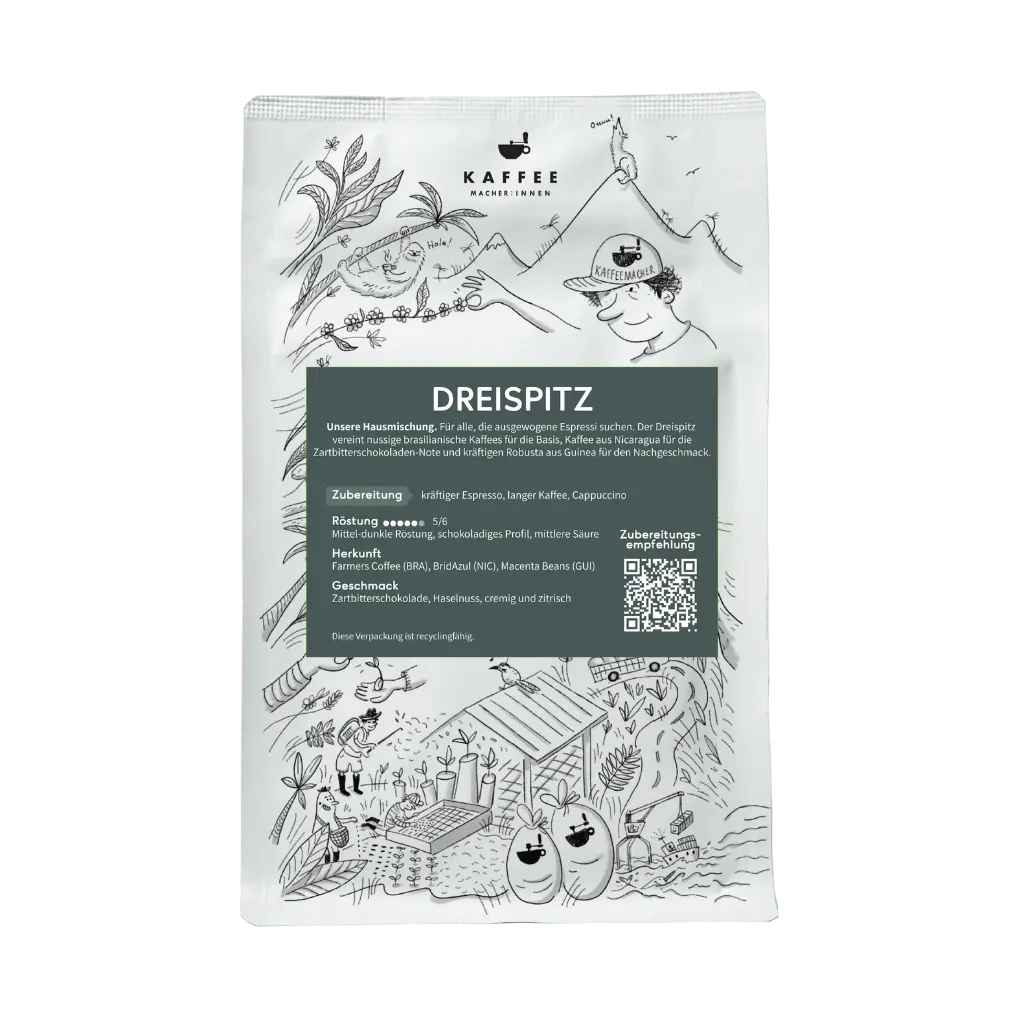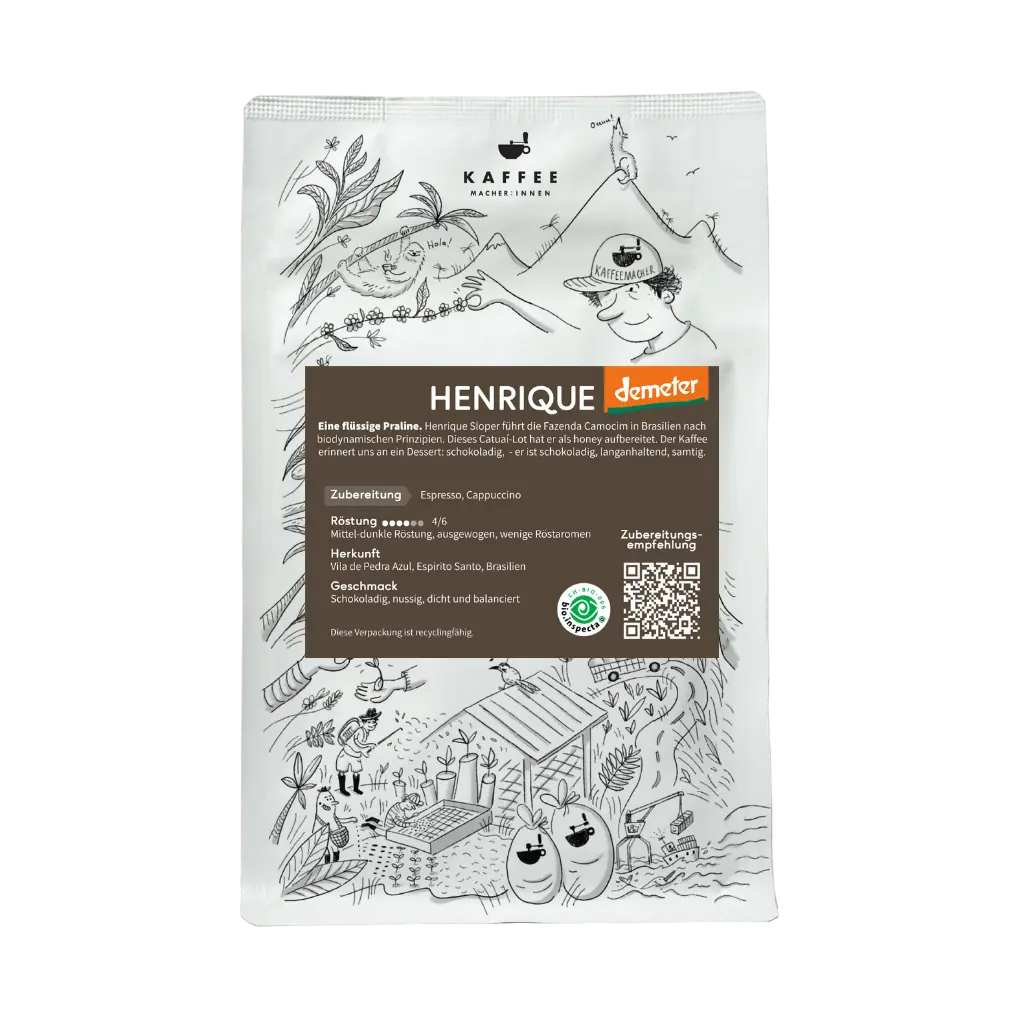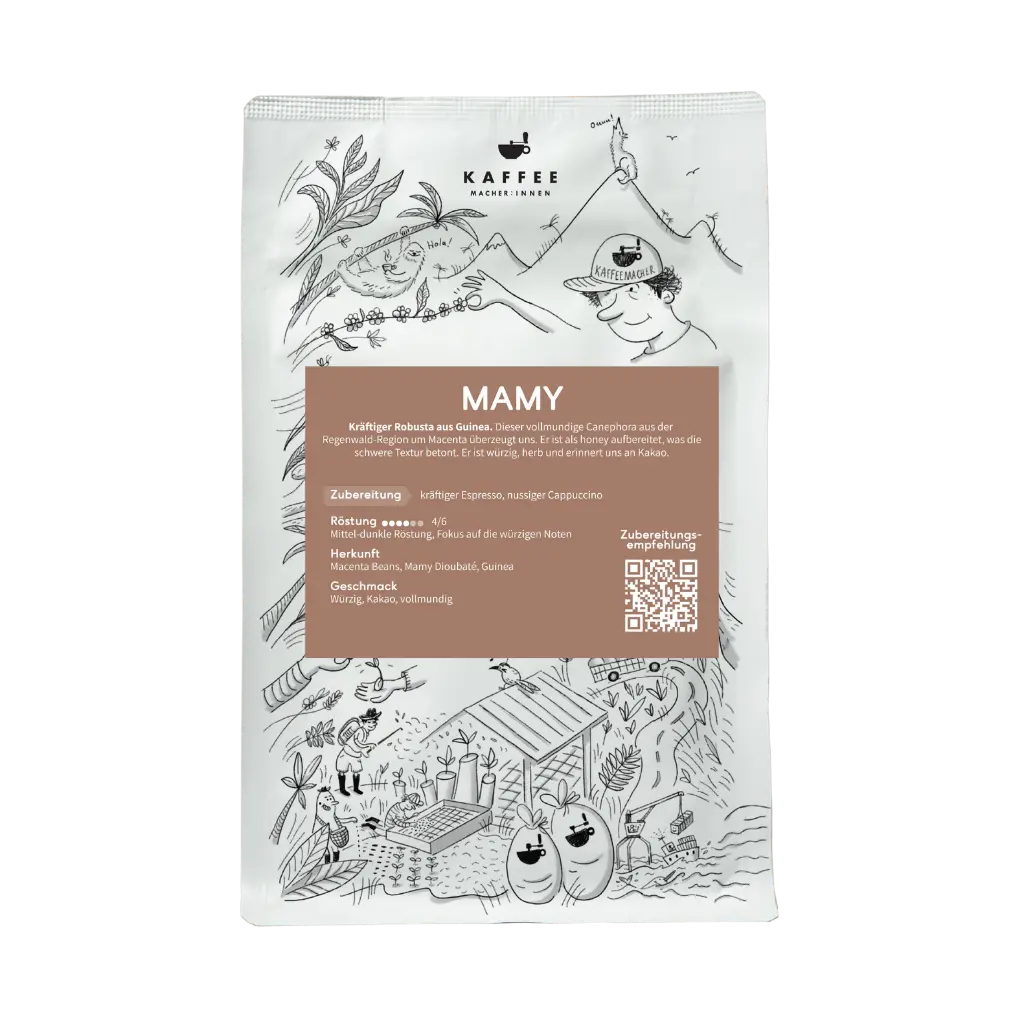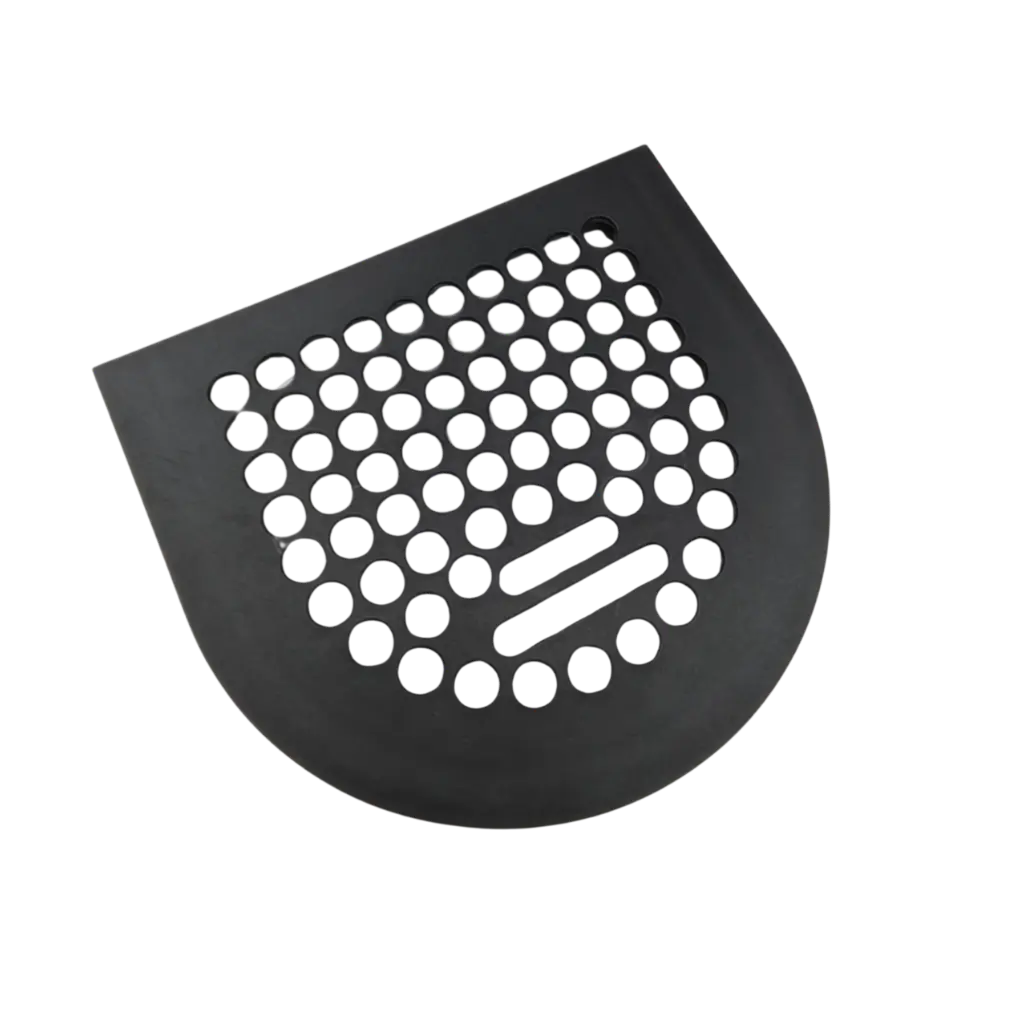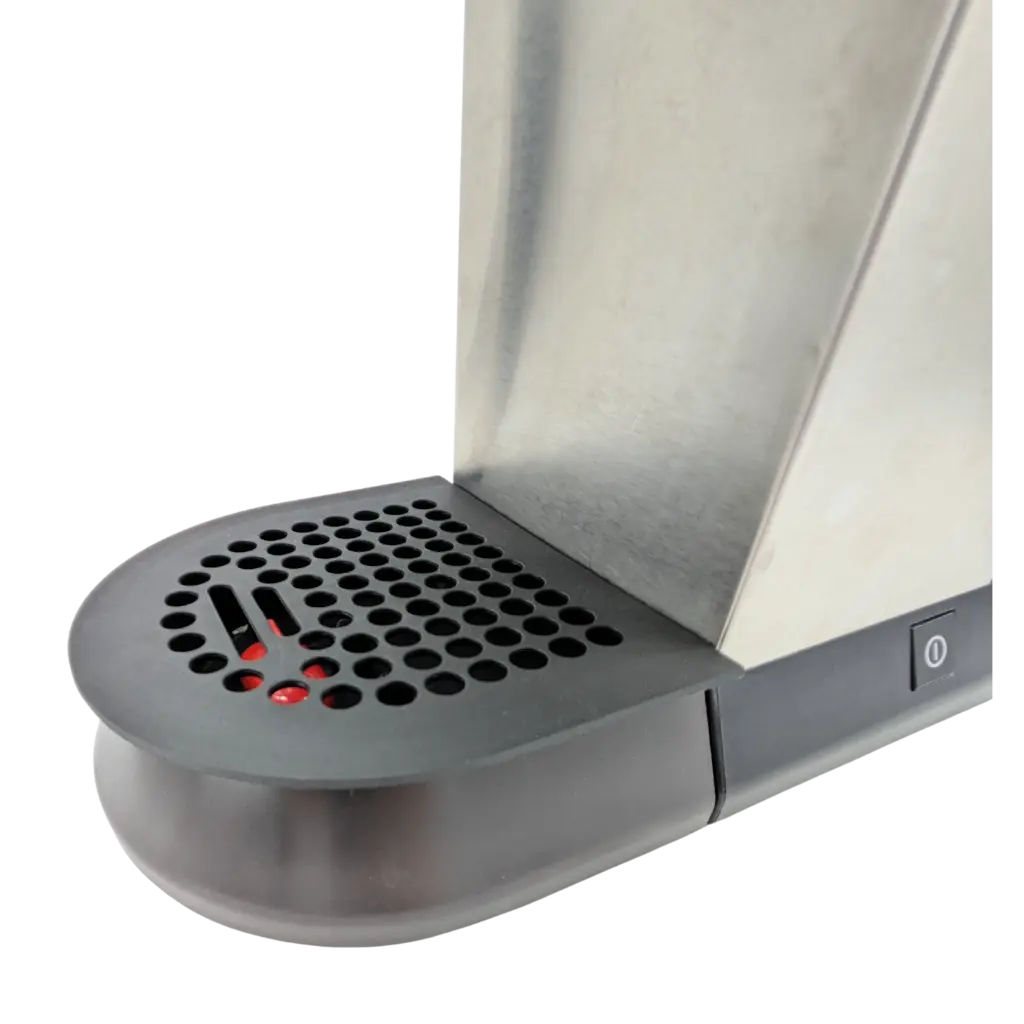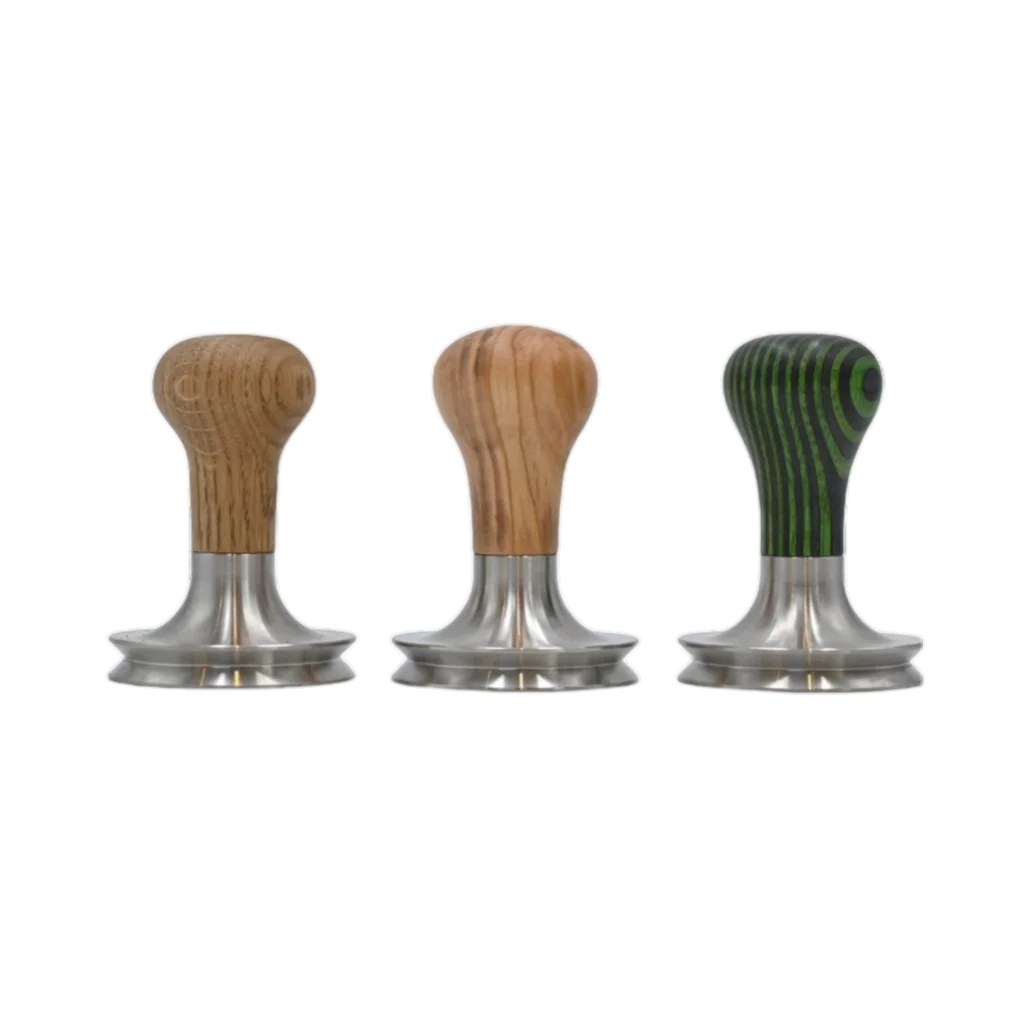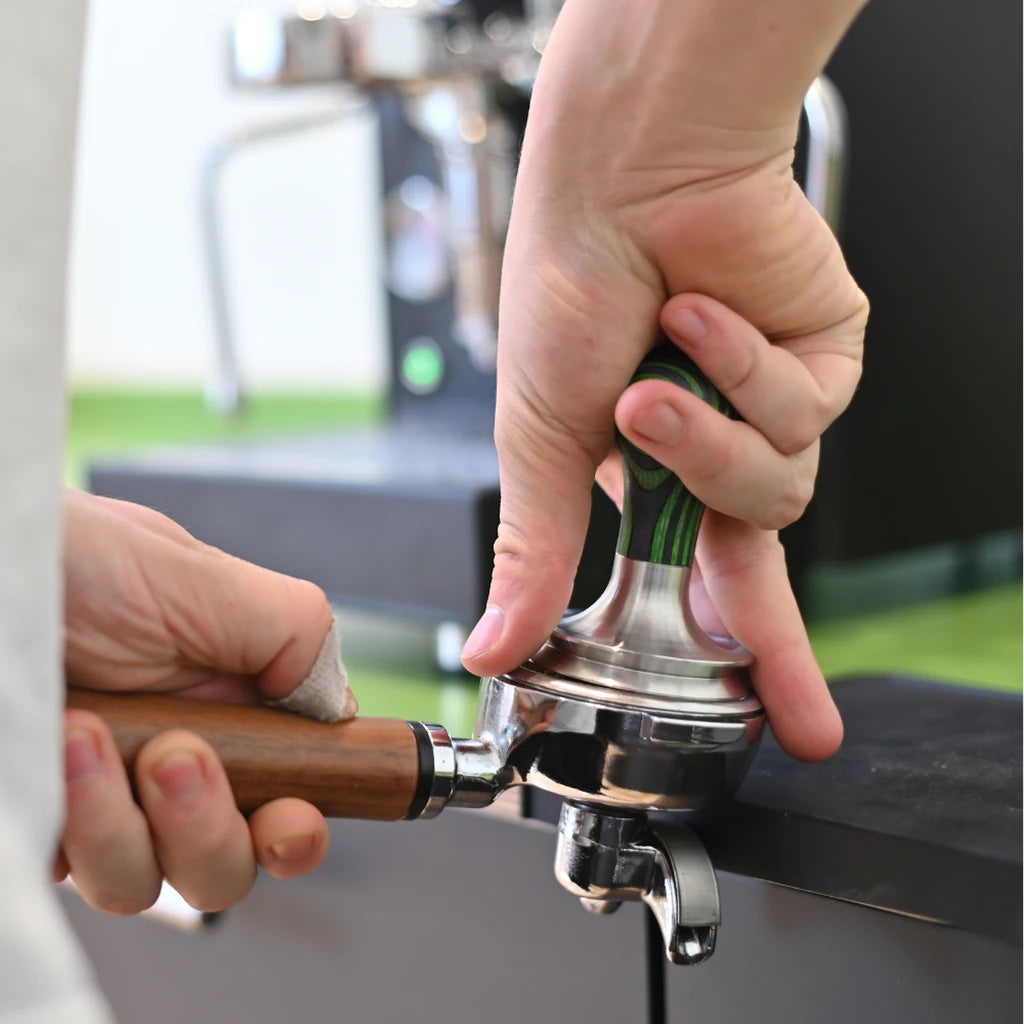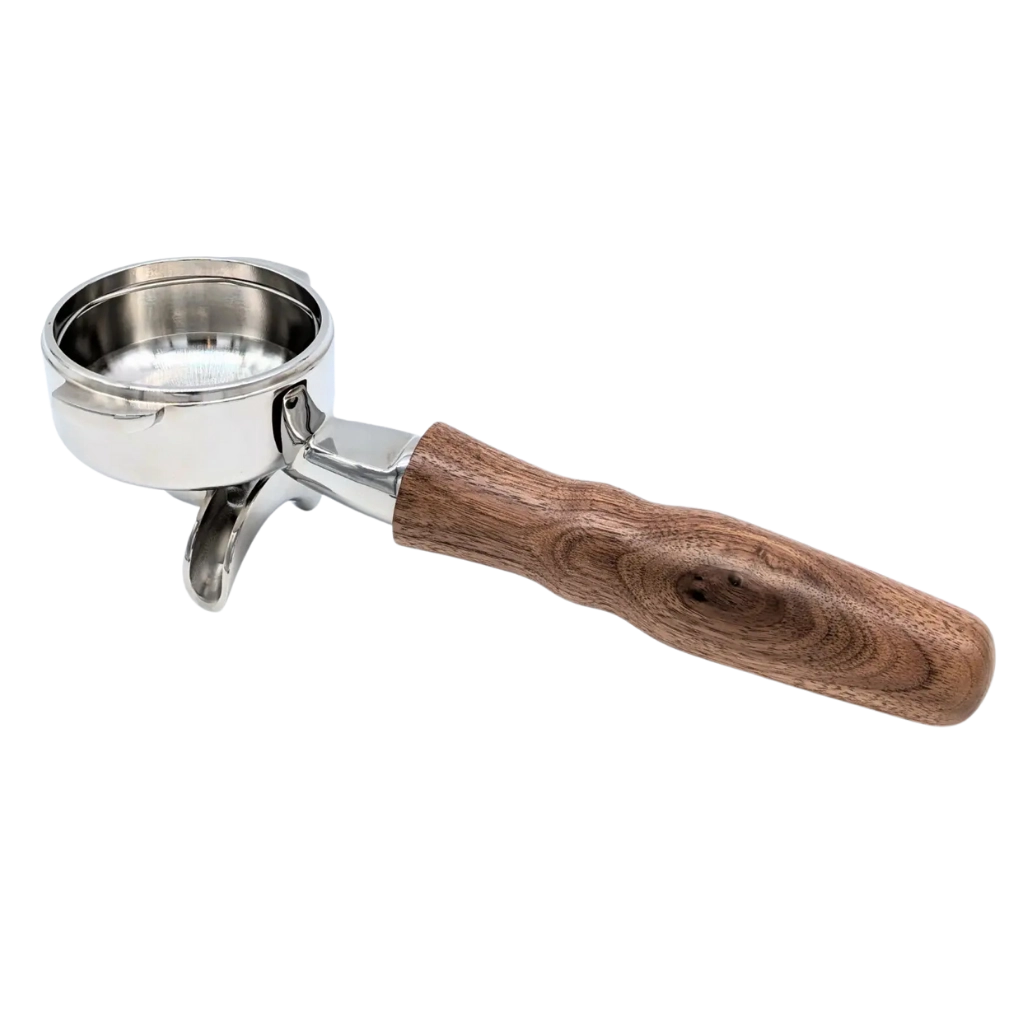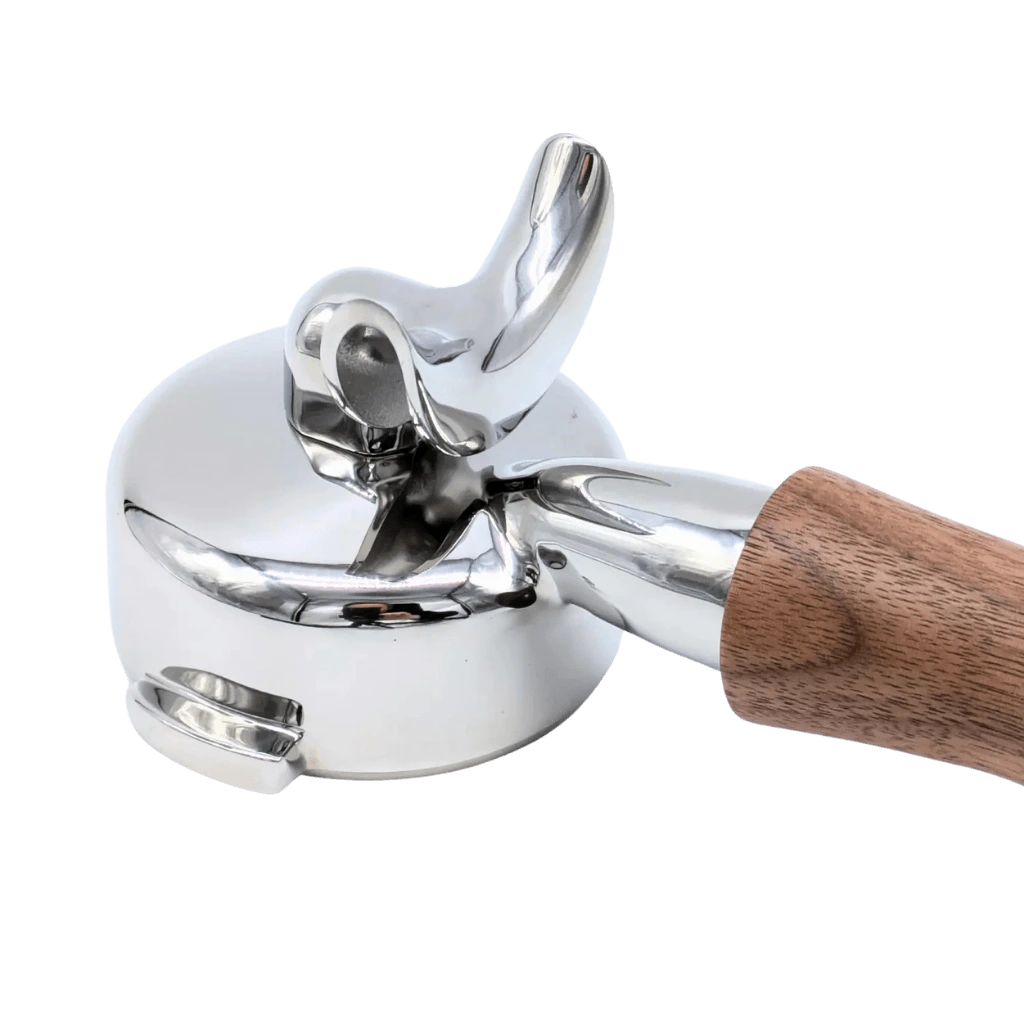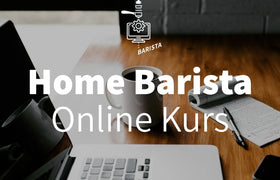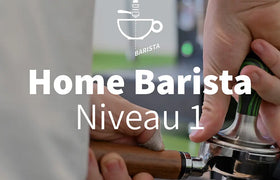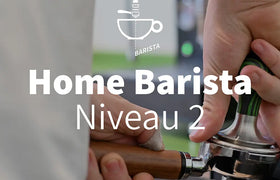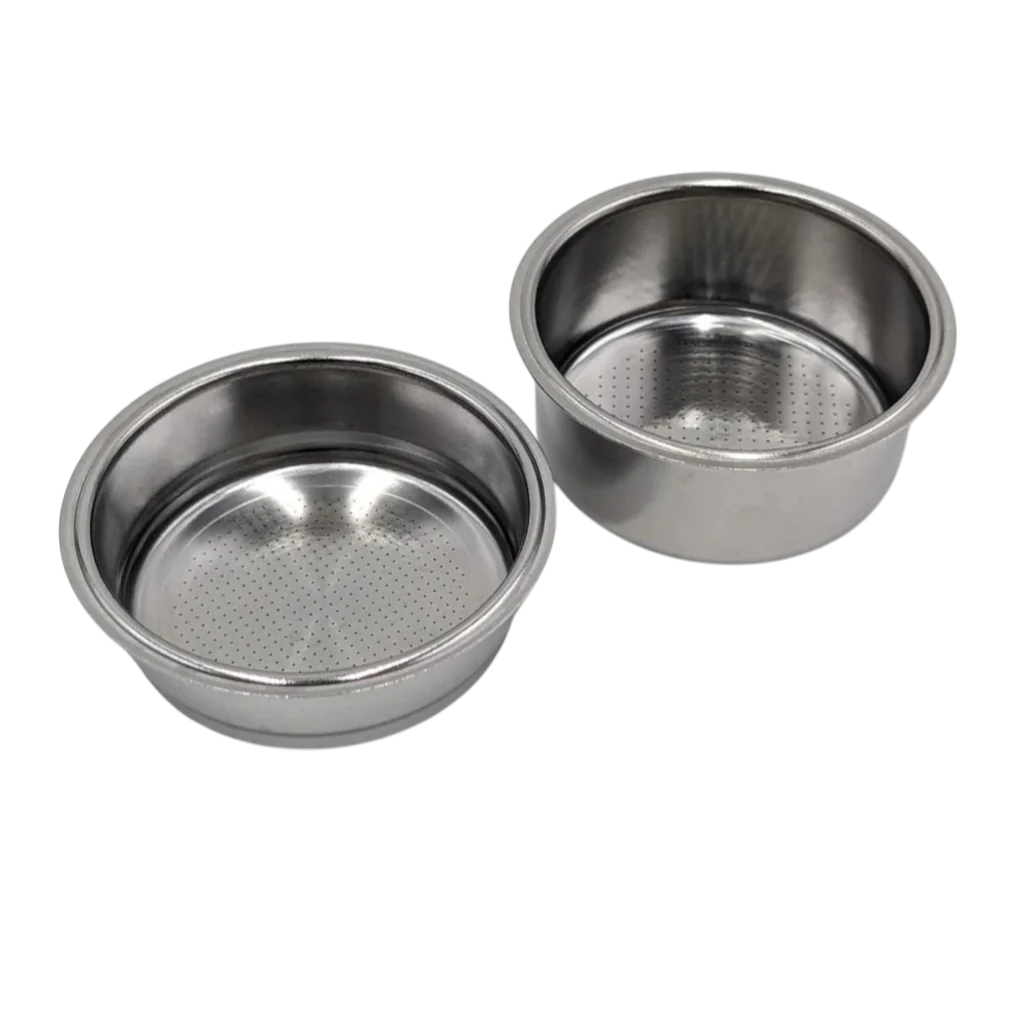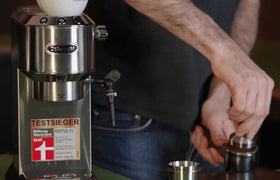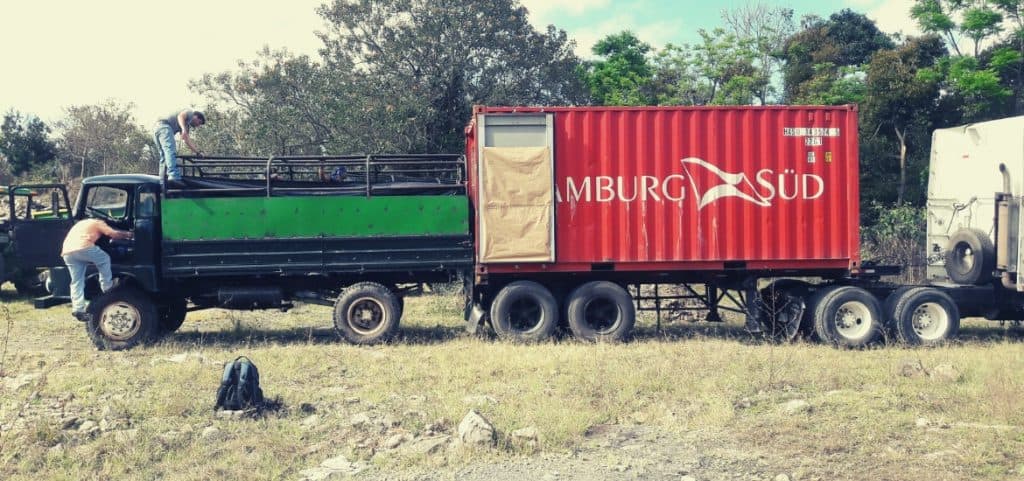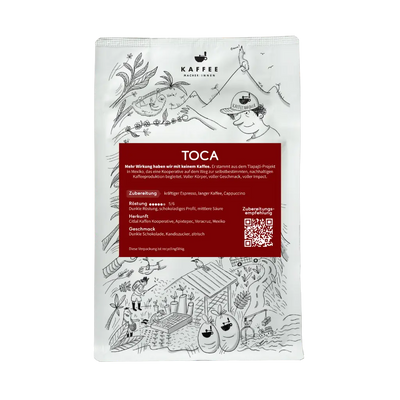In September 2019, a Facebook post by Angel Barrera caused quite a stir. The green coffee trader for Belco described in detail how Fair Trade-certified coffee was sold below the Fair Trade price under questionable agreements. This occurs when the Fair Trade coffee is sold as part of a mixed invoice with conventional coffee.
At the end of the day, this exploits consumers' ignorance. It's a sensitive issue because it calls into question the credibility of Fair Trade, casts a questionable light on roasters, and can harm producers in the long run.
At the same time, it's just one anecdote in a much larger discourse: Where are certified coffees headed? How does consumer trust in labels fare? Is a new certification for "truly fair" coffee that can guarantee a living income needed? Will this continue to be done through labels, or will blockchain take over this role in the future?
As coffee makers, we strive to understand complex issues, address unpleasant ones, tie loose ends together, and pass on what we've learned. And so, with this article, we've set out to explore the various facets of "combos and the like."
We spoke with FairTrade Max Havelaar , with large roasters, with retailers, and with traders and producers to gain a deeper understanding of different perspectives.
So what's this whole debate about? The short answer is – it's not easy. We'll present the longer answer here in a structured format.
For this purpose, we've provided a "self-check" for all roasters. Perhaps roasters aren't sure whether they're buying coffee from a combo? Raphael Studer, CEO of algrano, has done the math for you. We've also enlisted another expert, Peter Lerch , to double-check the facts and calculations.
We treat all sources anonymously, except for those who have given us their consent. Thank you for your trust, your courage to address injustices, and your clear words.
In three parts, we discuss the challenges and opportunities, and possible ways out of the dilemma.
Benjamin Hohlmann and Philipp Schallberger
There is a Spanish version of this article. ->
Combos: when fair trade is no longer fair
Producers as part of the whole
Imagine the following scenario: You are one of the approximately 15 million small-scale coffee producers worldwide, producing coffee on your farm, which is no larger than three football fields. You belong to a cooperative that is your central partner for all coffee-related matters.
The cooperative gives you access to agronomic knowledge that might otherwise be inaccessible to you. The cooperative gives you the opportunity to purchase seedlings and access fertilizers and pesticides at lower prices. The cooperative also buys your coffee cherries, processes them into transportable coffee, and brings your coffee into the world. The cooperative can be a gateway to the coffee world for coffee producers. A gateway that can provide access to markets that you couldn't reach as an individual.
How does FairTrade – Max Havelaar work?
The market for FairTrade-certified coffee is one such market. FairTrade International certifies cooperatives, not individual producers. Bringing producers together in a cooperative allows FairTrade to reach more producers at once and establish democratic structures within the sales organization. FairTrade can thus help individual producers gain more market power. The producers themselves are now required to follow FairTrade International's guidelines in return for being able to market their coffee as FairTrade-certified.
Marketing under the FairTrade or Max Havelaar label in Switzerland guarantees a minimum FOB price of 140 cents/libra (just under a pound: 0.457 kg). In addition, there is a Fairtrade premium of 20 cents/lb, which is paid to the cooperative. The cooperative is expected to democratically manage the use of the premium pool and invest in long-term projects or necessary infrastructure.
However, the 140 cents/lb FOB doesn't mean that all of it reaches the producers. According to information from a Peruvian cooperative, approximately 115 cents/lb reaches the cooperative.
25 cents per libra is used for dry mill services, domestic transport, and financing costs. These costs also apply to other coffees.
| Fairtrade Minimum Price FOB | 140 cents/libra | 3.08 USD/kg |
| from this is deducted | ||
| Exporter Country of Origin (Truck, Paperwork) | ||
| Dry Mill Services (peeling, sorting, cleaning) | ||
| Storage costs | ||
| Financing costs for loans | ||
| total deductions according to Co-op from Peru | 25 cents/lb | 55 cents/kg |
| Cooperative X receives from the FOB price | approx. 115 cents/lb | 2.53 USD/kg |
| Cooperative X receives FairTrade premium from | 20 cents/lb | 0.44 USD/kg |
“140 cents/lb is a figure that has long been considered the size for washed coffee, at which coffee can be produced at cost with a small margin,” said Peter Lerch in a podcast with us .
However, these 140 cents have lost value in recent years as fertilizer, living costs, and labor have become more expensive. Unlike the coffee price on the stock exchange, however, the 140 cents have performed significantly better in recent years in the vast majority of cases.
The graph shows when the market price was higher than the FairTrade minimum price (blue) and when it was lower (brown).

Source: https://www.fairtradecertified.org/news/fair-trade-coffee-myths
In times when the market price fluctuates sharply and repeatedly falls below the psychological threshold of 100 cents/lb, these 140 cents/lb are a blessing for many producers because they guarantee a minimum price. Or rather, if they guarantee a minimum price.
An oversaturated market
The roasted coffee market is huge. At least half of the world's population drinks coffee. According to the ICO, the number of coffees consumed globally is increasing by between 1.5 and 3% annually . Coffee consumption is also growing in Europe, albeit at a slower pace than in the emerging coffee markets of Southeast Asia and South America.
In Europe, the coffee market appears largely saturated—it's less broad, but more in-depth. The market has been diversifying for years, with single-serve coffees like capsules , as well as a growing appetite for bean coffees, which are being used in increasingly sophisticated fully automatic machines.
Interestingly, this is precisely where two markets of particular interest to us in our endeavor differ: the German and Swiss coffee markets. The two markets differ significantly in some respects. In Switzerland, single portions are the sole market leader in the consumer market, while in Germany, the "whole bean" remains the best-seller, despite more competing products.
The market in Germany is extremely price-driven, according to a source from a major German roaster. In Switzerland, we're sometimes in a bit of a "buying bubble." In Germany, people simply spend less money on food than in Switzerland. This is no different with coffee.
The German Coffee Association confirms that only 12% of all coffee on the roasted coffee market is certified —including organic, FairTrade, and Rainforest Alliance/UTZ certifications. The total FairTrade certified figure in Germany is just 4.9%. (Confirmed in the TransFair Annual and Impact Report 2019—available for download here ).
From an Instagram chat, we learned from the Darboven roastery that the proportion of FairTrade-certified products is also just under 5%. This puts Darboven at a German-wide level, but it's still shockingly small.
“The market for Fair Trade coffee is developing slowly and is only growing minimally,” said another source from a medium-sized German roaster.
For the German coffee market, which often presents itself as very sustainable and conscious, 4.9% Fair Trade coffee isn't much. And somehow, that's the real absurdity of the whole issue: For many, Fair Trade has become an idealistic benchmark for "correct coffee consumption," but the reality of the consumer simply looks different.
Philipp Schallberger & Benjamin Hohlmann
The reality is even worse than expected. Only around 33.8% of FairTrade-certified green coffee ends up in a FairTrade-certified roasted coffee product . FairTrade points out that this represents an increase of 15% since 2016. And yet, the remaining 66% of FairTrade-certified coffee must be sold on the conventional, non-certified coffee market—even if it meets all the requirements for a premium. And who covers this loss? Nobody. To repeat, and to be absolutely clear: 66% more FairTrade-certified coffee is produced than there are buyers!
FairTrade coffee as a SALE offer
The blatant surplus of Fairtrade-certified coffee is causing strange reactions on the retail side: We repeatedly see Fairtrade coffee being offered at special discounts in supermarkets. Various roasters are also starting to sell Fairtrade coffee at a discount. We find it difficult to see the retailer or roaster's full commitment to a certified product.
Certainly, attracting customers to the supermarket with tempting offers for one product, who then in turn buy other products, generates additional sales and keeps the capital machine running. But the message that you can get "fair coffee" at "cheap prices" is simply wrong – because it doesn't work that way.
Yes, we're seeing price pressure from the retail market; yes, we're seeing that cheaper is still great in many respects. However, there are certain products, such as FairTrade products, that are disqualified in this race for the lowest prices. We can all uphold a discourse about sustainability, fair prices, etc., but if, at the end of the day, FairTrade coffee is no longer fair, we're all deceiving ourselves.
The main thing is that the green coffee sells
Remember the thought experiment from the beginning of this text? You, as a small-scale coffee producer? Then let's return to that place, somewhere near the equator. The cooperative's management is currently in contact with potential buyers who need Fairtrade-certified coffee, ideally "a coffee with a story" – as if there were coffees without a story. You, as a producer, are part of this story, in fact, much more. Only through your work can someone far away tell a story.
The potential buyers analyze the situation clearly: they know that demand for FairTrade-certified coffee is stagnating in their domestic market. At the same time, the buyers see that the cooperative members have produced a lot of coffee. Of the 50 containers they produce together annually, 25 are FairTrade-certified. The potential buyer needs a total of two containers of FairTrade coffee, but sees that their demand is lower than their supply. The cooperative management sees this too—after all, they're hombre de negocio (businessman), as Pablo (fictitious name), a leader of a Honduran cooperative, explained to us.
"Look," says Pablo, "if I can sell two containers instead of just one, but I sell one container of FT goods at the FT price, that's good. However, I then offer a rebaja (discount) for the second container, the one with the conventional goods."
Pablo, Honduras
We ask if it's a must, a can, a want – "It's just like that. So we'll do a combo."
A combo is nothing more than a discount system for purchasing green coffee. If it were a discount for the same product, then it would be business as usual . But if the two sales components are certified and uncertified, it's not just suspicious – this method undermines the Fair Trade system, it perverts it. Indeed, it undermines the moral responsibility of green coffee traders and buyers. A combo means that the second container (with conventional coffee) often sells for less than the world market price. The average price of the two coffees is then often so low that the Fair Trade premium is lost.
Peter Lerch comments: "Combo sales are not only used with conventional coffees, but also with organic or Utz-certified coffee. For example, organic coffee should be priced at approximately +40 cents/lb if sold on its own. In a combo, it might be sold at +10. The same applies to Utz. The price should currently be +30 cents, but the coffee is sold at +10 cents or lower in the combo."
Peter Lerch
An example calculation
| Peru, Grade 1, uncertified: approx. 127 cts/lb (July 9, 2020) | ||
| regular | in the combo | |
| non-certified coffee | . + 30 cents/lb (market) (Peru differential) | Approx. +10cts/lb (Combo) |
| Market price: 0.97 USD/lb as of July 9, 2020 | 0.97 USC/lb | 0.97 USC/lb |
| 127 cents/lb | 107 cents/lb | |
| Peru, Grade 1, FairTrade certified approx. 160 cts/lb (July 9, 2020) | ||
| Minimum price FOB | 140 cents/lb | |
| FT bonus | 20 cents/lb | |
| 160 cents/lb | ||
| A possible combo would then look like this | ||
| 1 non-certified container for 107 cents/lb (20 cents lower than market price) 1 certified container for 160 cents/lb Average price: 133.5 cents/lb for both containers The cooperative therefore has a loss of 20 USC/lb for the non-certified coffee. |
||
| A correct mixed calculation with market price should look like this | ||
| 1 container not certified for 127 cents/lb 1 container certified for 160 cents/lb Average price: 143.50 'Loss' for the cooperative and ultimately the farmer: USC10/lb |
“Combos are increasingly used, especially in times of low world market prices, as the difference between the world market price and the Fairtrade minimum price can be over 40%,” says Simon Aebi of Max Havelaar Switzerland.
This means that when prices are really low, they are reduced even further through combo contracts concluded by buyers or traders.
However, we hear similar stories from all the cooperatives and exporters we've spoken with about combos. The oversupply of FT coffee is so drastic that many producers are often "happy" if they can still resell their coffee and aren't stuck with it. "Most cooperatives hold many certificates at once and try to sell FairTrade Organic first, then FairTrade, Rainforest Alliance, and UTZ," Peter Lerch points out. This order is determined by the premium level.
Other cooperatives we spoke with are simply frustrated and have lost faith in the system. It must be clearly stated here that the responsibility lies not with "the system" per se, but with those who operate within it.
Fairtrade doesn't play the role of the police. Fairtrade is an NGO. The costs of its structures are high, and Fairtrade is also a certification machine, but Fairtrade is something like "democracy under seals"—by no means perfect, inadequate for many, but still one of the best we have.
Simon Aebi of Max Havelaar Switzerland also expresses concern about the development of unfair trade practices. FairTrade International isn't simply standing by—quite the opposite. Aebi says, however:
"We cannot resolve unfair trading practices solely through regulations in the Fairtrade Standard and audits, but only in collaboration with smallholder organizations, traders, processors, and licensees. To openly discuss this issue, Fairtrade International hosted a roundtable discussion in Amsterdam on May 23, 2019. Further roundtable discussions are planned. During these discussions, unfair trading practices and their consequences will be openly addressed, and possible solutions will be jointly assessed and discussed."
Simon Aebi, Commercial Director, Max Havelaar Foundation Switzerland
FairTrade International clearly distances itself from combo practices, but has little leverage because they involve practices outside the actual scope of Fairtrade Standards. Aebi commented:
"The contracts in question are not Fairtrade sales, but conventional sales concluded below market price. In our view, the issue of combos must be addressed more intensively with all actors along the value chain, and all actors must be aware that unfair trading practices lead to a lose-lose situation in the long run. (...) Fairtrade cannot solve this challenge alone. All actors along the value chain bear responsibility."
Aebi is right – it's about responsibility. What this mechanism demonstrates in a textbook way is the transfer of responsibility along a supply chain.

What helps this situation is the anonymity of this chain. The physical distance between producers and consumers is so great that even the cheerful, smiling face of a coffee farmer on the packaging can't create more closeness.
Furthermore, you're buying a certified, fair-trade product, so a fair price must have been paid for it. Actually, yes, but in practice, often no – often only an average price was paid.
So, if we think this mechanism through to its logical conclusion, consumers are being deceived at the shelf. They buy Fairtrade coffee that deserves the label because the coffee itself complies with Fairtrade guidelines. At the same time, however, they fall victim to a mechanism that undermines the very essence of Fairtrade. It's precisely at this point that Fairtrade ceases to be fair – and Fairtrade itself can only stand by and watch. For now, but we'll come to that point later.
Now let us ask the questions we need to ask:
Who benefits from this?
- Primarily really large roasters. Those that really need a lot of coffee and whose portfolio must include FairTrade-certified coffee.
- In general, these are bean roasters because they need more coffee
- For medium roasters for single portion coffees, capsules etc., this system is less interesting because it is less certified, but for large roasters it is also
- The largest bean markets in Europe: Germany, Holland and France
- In markets where more bean coffee is present, the risk of excesses in the system increases.
Who does it harm?
- The credibility of FairTrade is extremely challenged here, even if it is not a direct FairTrade problem
- Rather, it is more likely that FairTrade is being exploited
- It not only harms FairTrade, but also the "good faith" in a truly fair trade chain. Once a producer has jumped on such a system, it takes a lot of persuasion that there should be an even fairer system.
Who is to blame?
- To ask the question of guilt in a well-oiled system in which everyone is a little ashamed, cannot/wants/should not come clean, everyone is partly to blame
- everyone who makes a purchase decision – but not the consumer . Consumers are, for once, in the dark.
- The roaster would therefore be the first in the chain of guilt to take responsibility
- then comes the trade that “invented” the combos
- However, the trade is being pressured to adopt these solutions, because those who do not participate do not sell to the big players
What could be solutions?
- Stop drinking Fairtrade coffee? Then demand will decrease even further, and even more Fairtrade coffee will end up on the conventional market.
- Drink more FairTrade coffee? Yes – and ask the retailer and roaster if they're not combo coffees.
- So we need to educate people – and we can achieve this through transparent pricing that would be accessible to everyone
- Peter Lerch proposes making transparent market differentials for individual coffees publicly available, controlled by independent institutions, and notes, “Implementation would be difficult—who is independent anyway?”
- Should FairTrade coffee be sold at a higher price – even if it doesn't automatically taste better? Yes – because "fair" isn't enough to live on. A living income must be the solution.
What does FairTrade say about this?
The major challenge with combos is that the contracts in question are not Fairtrade sales, but conventional sales below market price.
The Fairtrade Trade Standard ( https://www.fairtrade.net/standard/trader ) regulates exclusively the trade of Fairtrade-certified raw materials, not conventional trade transactions. As a certification and inspection body, FLOCERT therefore only audits those sales that are conducted under Fairtrade conditions (payment of minimum price, premium, payment terms, etc.) in independent audits. FLOCERT has no mandate to audit trade transactions outside of Fairtrade. This limitation makes it virtually impossible for FLOCERT to uncover combos in an audit and thus provide evidence of them.
Simon Aebi
And what will FairTrade change?
FairTrade wants to prevent combos, says Aebi, "because this unfair trading practice weakens smallholder farmers and thus clearly contradicts the philosophy of Fairtrade ." Here are some measures that Fairtrade has implemented so far to counteract combos and other unfair trading practices:
- Unfair trading practices have now been explicitly included in the Fairtrade trading standard ( https://www.fairtrade.net/standard/trader ) (4.8.1 Unfair Trading Practices):
Fairtrade does not accept unfair practices that clearly damage producers' or other traders' capacity to compete or the imposition of trading conditions on suppliers that would make it difficult for them to comply with Fairtrade standards. There are no indications that you engage in such practices.
This new standard enables FLOCERT to specifically sanction unfair trading practices if there is concrete evidence.
- If someone has specific information about combos carried out, they can file a complaint with FLOCERT: https://www.flocert.net/de/ueber-uns/qualitaet-und-einsprueche/
Thanks to the new standard (4.8.1 Unfair Trading Practices), FLOCERT can investigate this complaint and, if there is sufficient evidence, sanction the trader.
- FLOCERT is increasingly conducting focused and risk-based audits and has increased the number of unannounced audits.
What do major roasters say about this?
Switzerland's two largest retailers, Migros and Coop, insisted that no coffee from combo stores was on their shelves. Migros coffees are roasted by Delica AG, while Coop coffees are mostly roasted by UCC. The green coffee buyer at Delica, Migros' coffee roaster, assured:
“As long as I buy the coffee for Migros products, this won’t happen.”
Bruno Feer, Senior Purchaser Coffee, Delica
"We should ask the big players," we repeatedly heard from green coffee buyers. However, the big players have had little appetite to talk to us about these matters.
Who has the greatest responsibility?
Something became clear in our discussions: in a system that works when everyone participates and everyone passes responsibility on to the next person, the green coffee purchasing department bears the greatest responsibility. This is the position that ultimately purchases the coffees at the lowest possible price in order to stay within the company's targets. The green coffee purchasing department knows about the combo system—and if they don't, then the buyers know that Fairtrade coffee can't be that cheap.
It is the position that, as the sole actor, can knowingly drive the system in which coffee is purchased, or not. The role of green coffee purchasing is the hinge. While green coffee purchasing is based on digital tools, the actual agreements are made between people.
Knowledge is power and therefore responsibility. Anyone who knows about such practices and exercises this power is responsible for them. Whether a combo contract is implemented depends on the attitude of the person responsible for green coffee purchasing. Yes, they too must give in under pressure from the customer—if they want to pay less, then that's fine. And yet, the responsibility falls back on purchasing.
What role do traders play here?
The coffee trade wants to resell coffee. Those who are cheaper than their competitors have a competitive advantage.
The trade introduced the practices of combos and confidential deals to initially exploit their own advantages and increase their margin potential. This potential has long since been exploited, and the trade can only keep up with the competition by participating in the tenders for large roasters. Of course, they also have the option of clarifying the situation and refusing to accept these practices.
Old trade, new trade
The green coffee trade has undergone significant changes over the past decade. The demands of certain consumer groups have increased, and public pressure for transparent supply chains is growing. Roasters are increasingly required to communicate where their coffee comes from.
For many roasters, romanticized stories and images of coffee production are still sufficient for simple communication. However, we are sensing a change here as well. Greater demands for transparency mean that the green coffee trade must change.
Some smaller retailers are taking the lead and operating as a fully transparent digital platform, integrating blockchain technology into their operations. Others, such as traditional agents, often practice the opposite. If their own standards, or those of their customers, do not require transparency, the potential for shady business practices increases.
A source from a large German coffee roaster reminds us that in trading, an exporter and a counterpart, the importer, always work together. These relationships have grown over decades. And as the trade has grown, so have the people involved – which, of course, makes everyone's work much easier. At the same time, it's important to keep an eye on this, because where knowledge converges with power, and where this power is even exclusive, the potential for questionable business practices is higher than elsewhere.
Could anything be more absurd than combos? Yes – Confidentials and "Defects"
Absurdity 1: Confidentiales
We've learned that combos are almost a necessary evil for many producers. While researching this article, however, we learned something else entirely. Could anything be more absurd than combos? Yes: we're talking about confidentiales .
We received this WhatsApp message from a source on the coffee production side:
“Combos are to be differentiated from confidentials: with confidentials, the buyer only purchases fairtrade coffee, pays the Fairtrade price to the grower according to the official contract and then asks the grower to send the value of the “confidential discount” back. ”
Anonymous coffee producer
We didn't quite understand, so we asked for clarification, and it was true—a contract had been issued for FairTrade coffee, which is verified by FLOCERT . Payment has been made. Nothing is questionable yet.
Later, however, in some cases, the buyer demands a "confidential discount" from the exporter. And why?
“Often this is because the buyer has to incur extra costs in marketing the Fairtrade coffee, which in turn has to cover,” our source says.
Anonymous coffee producer
This is especially bad because there's no longer even a mixed calculation, and volume is being pushed. We've said it—it couldn't be more absurd.
It even hurts.
We wouldn't want to be in the shoes of the buyer who has to make this twisting of a well-intentioned approach for the sake of margin improvement. The Wolf of Wall Street sends his regards.
Absurdity 2: Devaluation of the FT price due to defects
FairTrade certification applies to coffees that meet clearly defined production standards—but not quality standards. The FairTrade blends we know of in large quantities are generally cooperative blends, not microlots. Quality ranges from good to fair to several defects.
However, many buyers have less detailed specifications for FT coffees than for other coffees in their range, and quality actually plays a secondary role for many, confirms a source at one of the major German roasters.
However, if a green coffee is found to be defective in the buyer's cupping room, a price reduction is often demanded - even if quality was not the primary consideration in the purchase contract.
This practice is not permitted.
“Even if the coffee had 90 defects, no reduction in quality should be given,” Lerch continued.
Peter Lerch
However, it seems that a quality discount is often demanded, and the coffee is only accepted under these conditions. Unfortunately, this is difficult to prove, as it doesn't appear anywhere in the accounting records.
Courage: what it takes for us to talk about it.
During our research for this article, one word constantly hung over our heads like the sword of Damocles: discretion. Some roasters demanded discretion, saying they weren't sure whether the coffee was a combo or not and didn't want to "slander anyone."
The dealers demanded discretion, as they "act on behalf of the roasters." The producers demanded discretion because they are simply hit hardest when names come into play.
Pretty absurd, isn't it? We all supposedly want a fairer supply chain, with more transparency, better conditions for everyone, and more of everything we value.
But then, when it comes down to the nitty-gritty, we fall back into traditional patterns that have shaped the coffee industry so much in the last century and made it so lucrative: discretion, gentlemen's agreements, sacred cows.
In these specific cases of combos and confidentials, however, discretion is only justified if it is necessary to protect individuals. We have done so in this article. However, there is no reason not to make the situation public and not to explain it. Coffee drinkers need to be aware of this and become even more discerning.
It takes courage on all sides to talk about this. We noticed, especially on the producers' side, how sensitively this topic is handled. Even after repeated follow-up with contacts we've had for several years, we received only very superficial answers, if any at all.
However, a contact from Honduras was candid . He wrote to us that, as a cooperative, they had to offer discounts for several years just to be able to sell coffee at all.
“But that has now subsided; in fact, it doesn’t happen anymore (…) except for two buyers who demand a discount every year for FT-certified coffee.”
Further voices from Peru confirm this practice. Both Peru and Honduras are leading coffee-producing countries when it comes to Fair Trade coffee.
Our source further explains that the premiums should reach the cooperative via the exporter. However, not every cooperative is also an exporter. Irregularities can arise at the exporter-cooperative interface.
"Theoretically, the exporter should pass on 100% of the FT premium to the cooperative—however, in several cases known to us, this does not happen. (...)" The exporter retains a substantial portion of the premium and passes a fraction on to the cooperative.
Source from Peru
We've heard of many isolated cases in recent months. However, it seems that these isolated cases reflect a larger pattern and are not that rare. All our contacts have mentioned that they've at least "heard" of confidentials, combos, and irregularities. Combos are often made with large buyers or when a cooperative is new to the market—sort of like a welcome discount.
The aforementioned source in Honduras also had the courage to write to us exactly what she thinks and sums up the dilemma.
The combinations are in a different form to commercialize the coffee shop of the small products. The mayor esfuerzo de los criterios de cumplimiento sucede a level del productor. It's more exigent and more pierde with the theme of combos. A cooperativa busca el certificado FAIRTRADE, para buscar more ingresos a sus productores de la manera más justa posible. Pero cuando only puedes vender el 50% de tu producción Fairtrade, this Fairtrade product does not attract the certification for the products. FAIRTRADE is the supervisor of much more than the suppliers and exporters, as the incident of the combos is particularly noticeable.
Combos are an unfair practice for selling coffee from small producers. Producers have the greatest burden to meet the Fairtrade criteria. They are the ones who are most challenged and who lose the most from combos. A cooperative gets certified so it can generate higher incomes for its members. However, if you can only sell 50% of your Fairtrade production as such, certification is no longer attractive. Fairtrade must monitor buyers and exporters much more closely to curb combos .
Source from Honduras
In addition to courage, it requires, above all, vision and a crystal-clear inner stance, such as that of Bruno Feer, Delica's green coffee buyer, who told us more clearly than any other buyer that he will not tolerate combos as long as he buys coffee. We need these strong convictions. As an expert, purchasing must be knowledgeable about all practices, politely decline offers that suggest combos, and act conscientiously, especially today.
What can Fair Trade do? Simon Aebi outlined Fairtrade's action plan above. Things are moving, albeit slowly. Anyone with evidence of unfair trading practices can now file a complaint with FLOCERT here: https://www.flocert.net/de/ueber-uns/qualitaet-und-einsprueche/ . We appreciate FairTrade Max Havelaar's openness to inviting courageous criticism.
Could it be that as a coffee roaster I bought a coffee from a combo without knowing it?
Raphael Studer from Algrano was counting on us:
“If a roaster buys FTO (FairTrade-Organic, so-called double-certified) coffees for 4.20 CHF/kg, namely
FairTrade organic certified coffee from Peru:
FOB 1.90 USD/lb
+ Import to Hamburg, including customs clearance: 0.07USD/lb
+ Storage 6 months: 0.07USD/lb
+ Financing 6 months: 0.04USD/lb
At an exchange rate of 0.95USD/CHF per kilogram, the coffee has a value of 4.36CHF/kg.
The coffee hasn't even reached the roastery yet, so it's still being transported by truck. It costs another CHF 0.1/kg to Switzerland.
So at 4.50 CHF/kg for a FairTrade organic coffee, the retailer has not yet earned anything.
Then the minimum price plus the transparent costs without the dealer's margin would have to be CHF 4.60/kg. Available for one year, financed, transported, and cleared through customs.
FTO coffee under CHF 4.60/kg? Risky…

Change. Does it need a new label?
In this article, we have attempted to highlight the complex realities of the interaction between the various links along the FairTrade coffee chain.
It's complex!
And it remains to be seen which labels will have which functions in the future, and which certificates have served their purpose and will be replaced.
It's essential to assess the significance of a label and verify its validity. Gebana has taken a bold and, in our view, forward-looking step in this regard, marking its 20th anniversary. "There is no such thing as a fair product; fair trade is a process."
Such a classification is particularly important for the credibility of a certificate. Proclaiming more than has been achieved undermines trust. Great precision is required in describing the measures and the resulting impact of certificates and labels. At the same time, we can't label ethics. We need roasters who negotiate prices directly with producers.
The folklorization of images, such as "traditionally hand-picked coffee," is problematic. While hand-picking can result in better quality, in the commodity market, this reflects poverty rather than quality.
Benjamin Hohlmann and Philipp Schallberger
A precise definition of the measures and transparency about their impact are particularly important when more and more critical questions arise in the media and it also becomes clear how a system is being undermined by schemes such as combos and confidentialities .
A future for the FairTrade label
Fair Trade paves the way. The label helps ensure a minimum selling price for coffee can be achieved. This is a crucial and important safety net in times of low market prices. We must continue the discussion in this spirit.
Because Fair Trade certification was originally created to process a complex topic into an easily understandable name and logo.
However, the goals of the Fairtrade seal don't help producers find their way out of poverty. They merely insure against even greater hardship during periods of stock market decline. We must work together to ensure that the minimum requirements of the Fairtrade seal become the minimum standard for the entire industry.
Similar to the "Green Dot," coffee must be certified as non-compliant with the current Fairtrade label. Production costs must at least be covered. It's truly fair when there's still enough left over to live on.
Proposal 1: Minimum purchase price for large roasters
With regard to large roasters, one measure could be that, starting in 2022, a Fairtrade label may only be used by roasters that purchase at least 30% of their coffee at a minimum purchase price. A corresponding timeline could stipulate that an increase in the requirement by 2030 requires that all coffee be purchased at a minimum price that reflects production costs.
This would also eliminate the practice of roasters hiding behind “fair” private labels, which, upon closer inspection, represent only a fraction of the coffee purchased according to FairTrade standards.
Fairtrade reduces its communication by creating a "fair" impression. However, the adjective "fair" is hardly justifiable and can only be misleading in a context like coffee production, which is continually riddled with inequalities and unfair practices.
In hardly any country is the Fair Trade price sufficient to cover production costs, let alone the cost of living, and even less so to lift the consumer out of poverty. Conveying a "feel-good" message to consumers in this regard is a problematic tendency that too easily plays into the hands of the often lavish and cheerful coffee campaigns.
Proposal 2: Living Income Definition for Coffee Producers through Fair Trade
Transparency and honesty are required. FairTrade has some catching up to do here if it wants to play a role in times of new and far-reaching impulses from a post-certification movement (see also transparency.coffee ). At the same time, FairTrade arguably has the greatest opportunity to advance the certification industry.
We need a public exchange about farmgate prices and living income, gathering information on production costs and living costs that enable a decent life. There's a lot to be done here, and Fairtrade, with its extensive network, could make a decisive contribution to collecting this data and raising widespread awareness.
One option could be for FairTrade, with the wealth of information it already has, to make this information public and publish the specific living income per cooperative. This would allow consumers and roasters alike to know what the cost of living is in a specific location and how a truly fair coffee price could contribute to this.
And who else?
For coffee, we can only hope that we will define an ISO standard for sustainability and traceability, similar to what we achieved for cocoa in 2019 .
This requires sanctions from national coffee associations, such as the German Coffee Association – because where there is no plaintiff, there is no judge. FairTrade alone is in a difficult position, with a poor negotiating position with the roasters.
Everyone has to get on board – small roasters like us can set the tone and, as the spearhead of more appropriate purchasing, have a duty. The big players, for whom combos and confidentials are important, have to act.
This requires immense solidarity from all players in the retail industry. But our goal cannot be anything less.
Benjamin Hohlmann and Philipp Schallberger, July 2020



